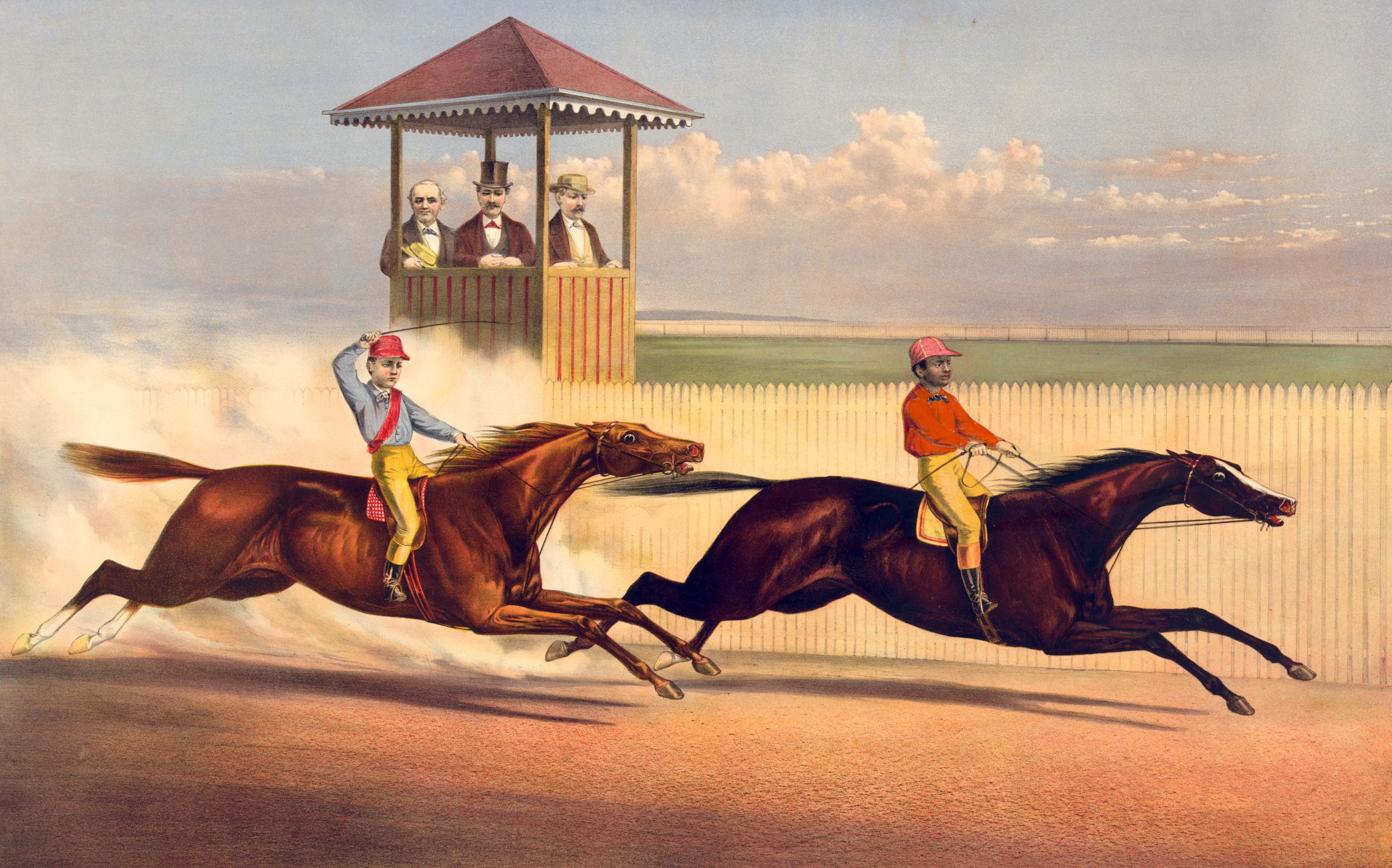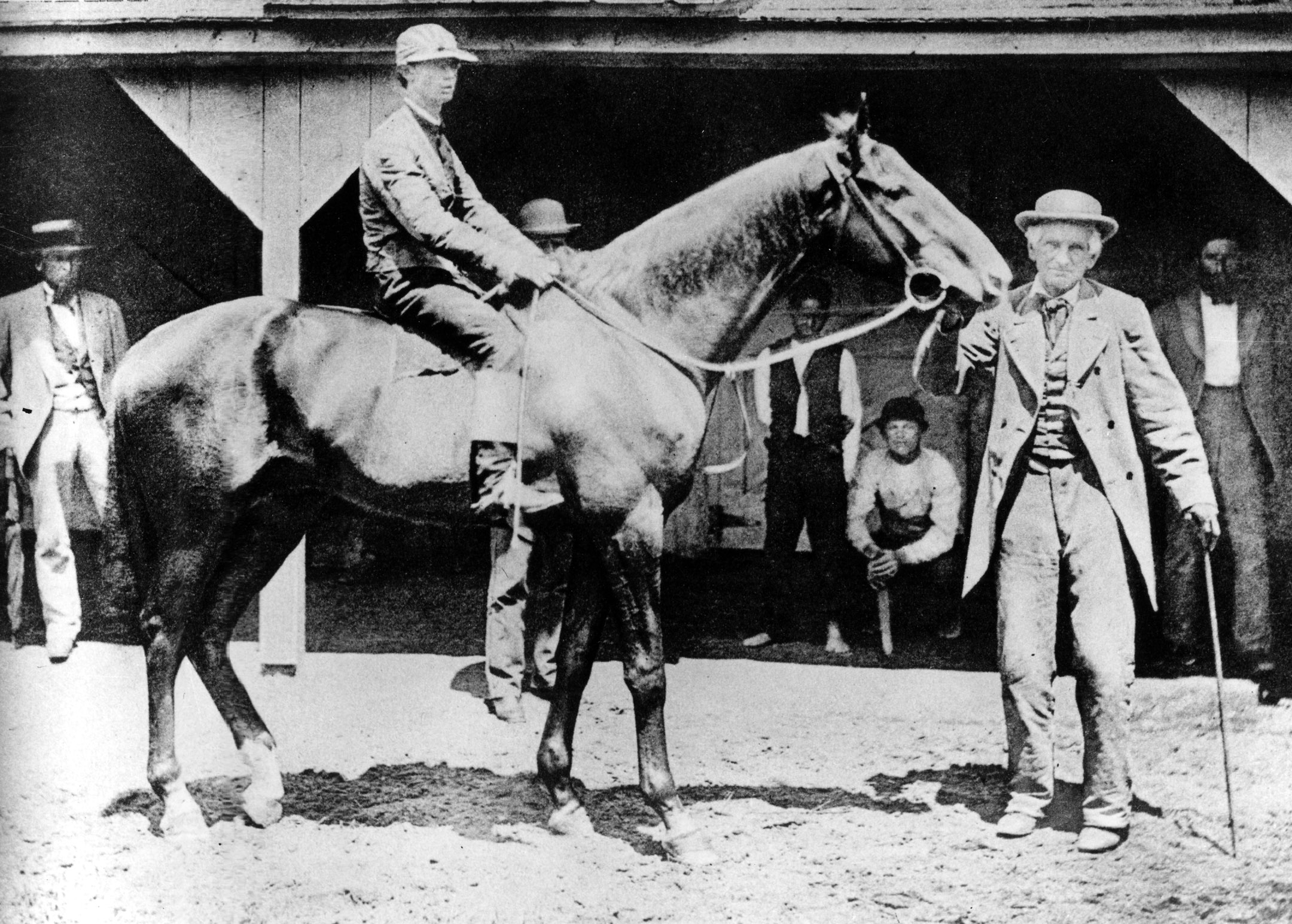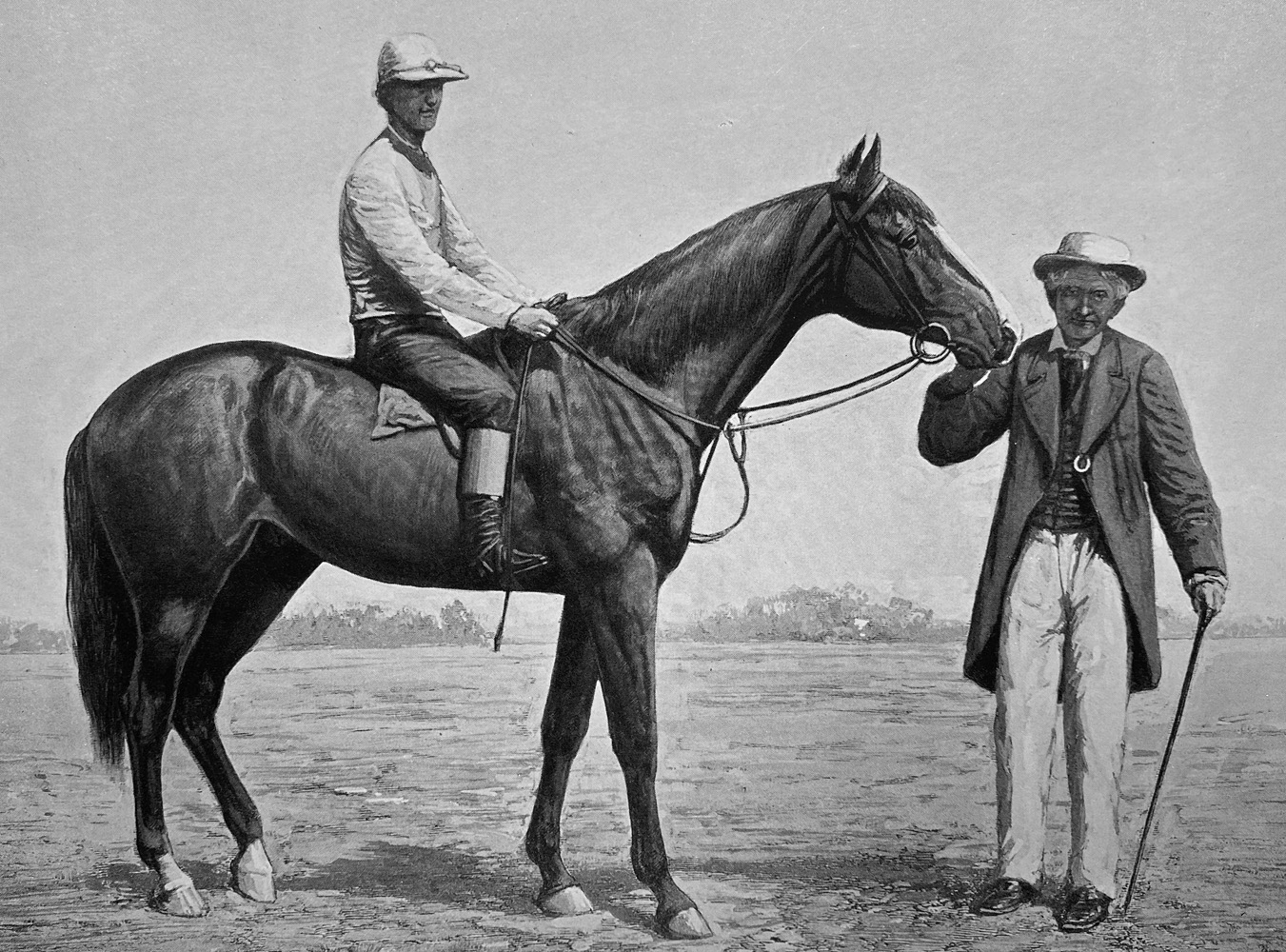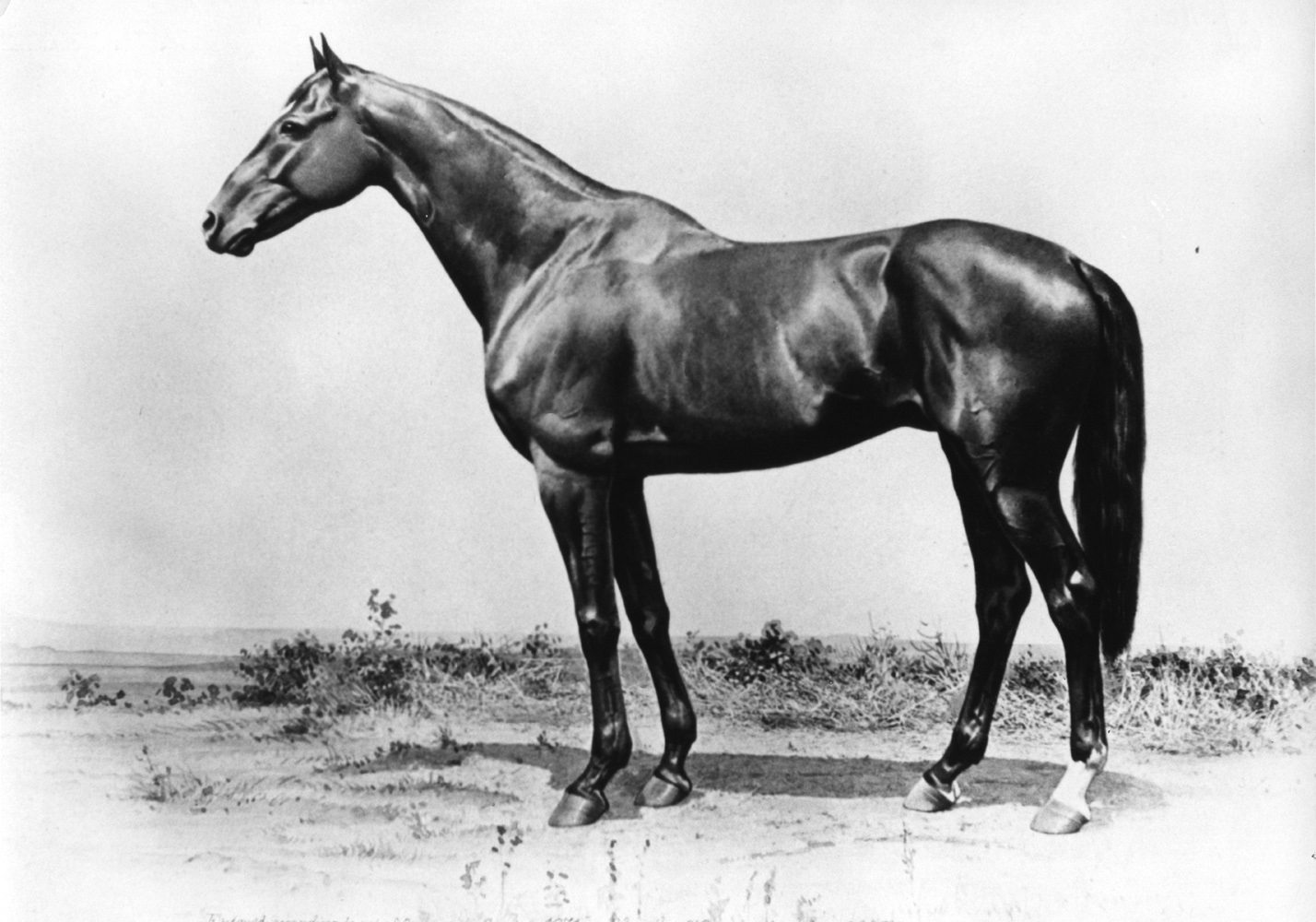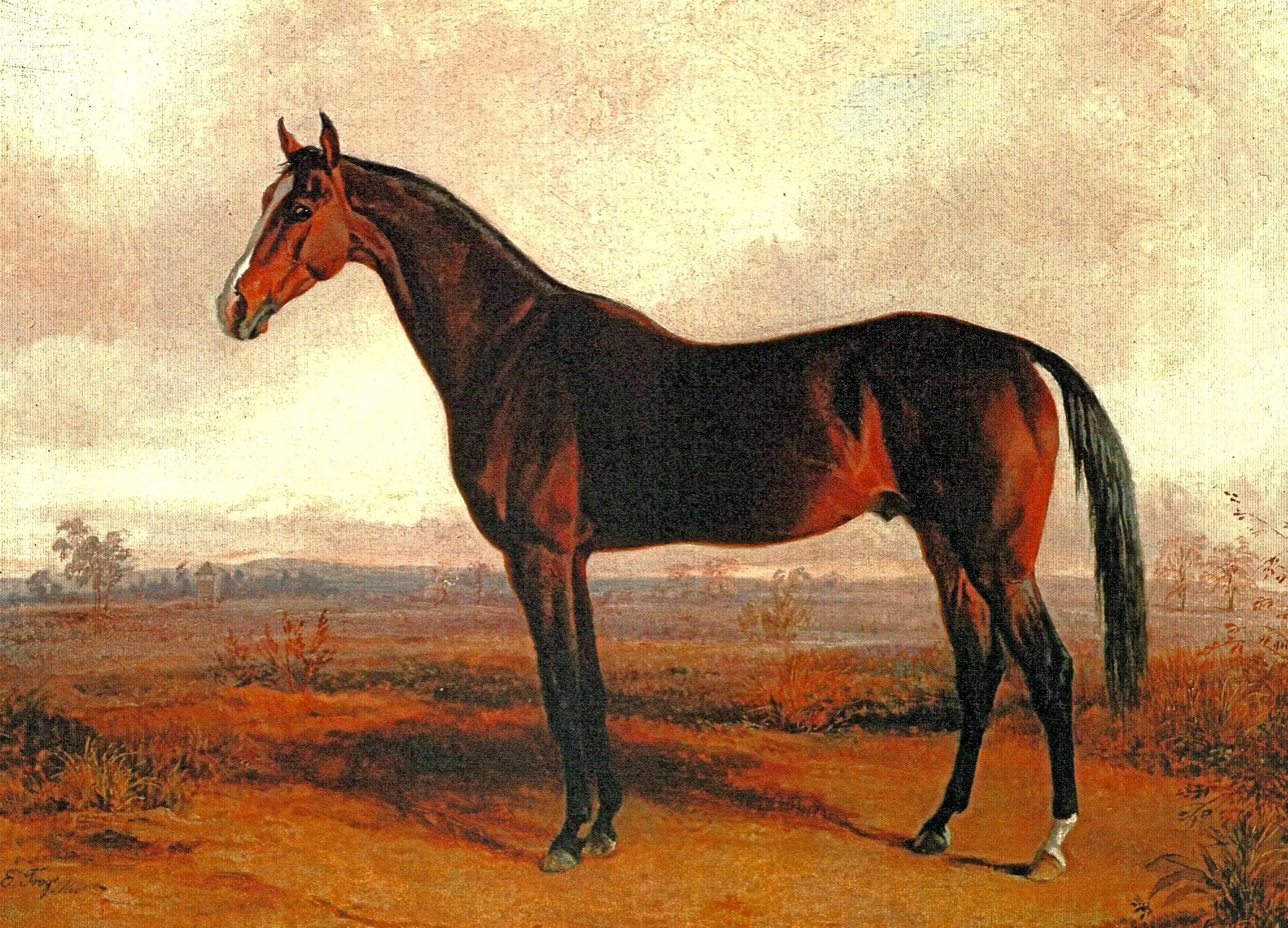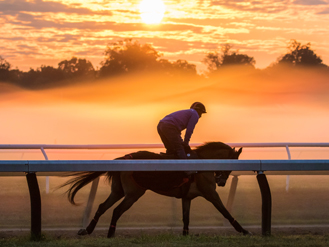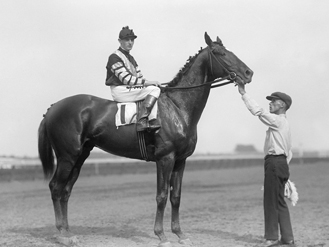Longfellow (KY)
Longfellow was referred to as the “King of the Turf” during the 1870s. Racing historian Walter Vosburgh said Longfellow was “beyond question the most celebrated horse of the 1870s. No other horse of his day was a greater object of public notice. His entire career was sensational; people seemed to regard him as a superhorse.”
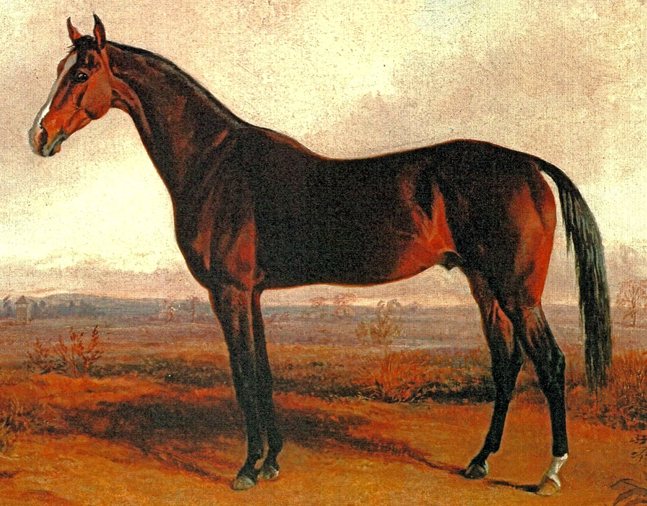
1971
1867
Leamington
Nantura
Brawner's Eclipse
John Harper
John Harper
John Harper
1870-1872
$11,200
Racing Record
16
Starts
| 1870 | 5 | 4 | 0 | 0 | $3100 $3,100 |
| 1871 | 6 | 5 | 1 | 0 | $4450 $4,450 |
| 1872 | 5 | 4 | 1 | 0 | $3650 $3,650 |
Biography
Longfellow was referred to as the “King of the Turf” during the 1870s. Racing historian Walter Vosburgh said Longfellow was “beyond question the most celebrated horse of the 1870s. No other horse of his day was a greater object of public notice. His entire career was sensational; people seemed to regard him as a superhorse.”
Bred, owned, and trained by John Harper, Longfellow was a son of Leamington out of the Brawner’s Eclipse mare Nantura. Foaled at Harper’s Nantura Farm near Midway, Kentucky, on May 10, 1867, Longfellow was a massive colt of 17 hands, so ungainly no attempt was made to race him as a 2-year-old while he was still developing physically.
A writer for the Spirit of the Times asked Harper if Longfellow was named after the celebrated poet Henry Wadsworth Longfellow, prompting Harper to respond, “Never heard much of that feller, but that colt of mine’s got the longest legs of any feller I ever seen.”
Longfellow made his debut in the spring of 1870, but his inexperience showed as he was easily defeated in the Phoenix Hotel Stakes. Harper decided Longfellow needed more time to develop and did not race the colt again until the fall.
Upon his return, Longfellow came into his own. On Sept. 16, 1870, Longfellow won the Produce Stakes in two-mile heats at the Kentucky Association track in Lexington. Two weeks later, he won the Ohio Stakes in Cincinnati, again in two-mile heats. Sent to Nashville, Tennessee, on Oct. 12, Longfellow won the Citizens’ Stakes. He then wrapped up his season with a fourth consecutive win on the Post Stakes in Memphis.
As a 4-year-old in 1871, Longfellow was regarded by many as the finest horse in America. His victories included the Monmouth Cup (defeating standouts Helmbold and Preakness) at 2½ miles and the Saratoga Cup (defeating Kingfisher, winner of the Belmont and Travers in 1870) at 2½ miles, as well as a match race against Pilgrim.
There was another horse in training in 1871 some rated on equal terms or better than Longfellow. The 3-year-old Harry Bassett won all nine of his races that year, including the Belmont, Travers, Jersey Derby, Kenner, Champion, Reunion, and Bowie stakes. A showdown with Longfellow seemed inevitable.
The 5-year-old Longfellow met the 4-year-old Harry Bassett at Long Branch, New Jersey, on July 2, 1872, for the Monmouth Cup before a crowd estimated at 30,000. Harper’s charge dominated, winning by an estimated 100 yards in the 2½-mile contest. Harry Bassett sulked early in the race and seemed disinterested as Longfellow pulled away. The result snapped a 14-race win streak for Harry Bassett.
The two met again July 16 at Saratoga Race Course in the 2¼-mile Saratoga Cup. Unfortunately for Longfellow, he twisted the plate on his left forefoot going to the post. Racing in severe pain, Longfellow still put forth a heroic effort before an inevitable defeat. Harry Bassett won by a length in 3:59, the fastest at the distance ever recorded up to that time.
Longfellow limped past the judges’ stand and his discomfort was obvious. The plate had twisted and bent double during the race and became embedded into the hoof, leaving his front left foot mutilated. Harper brought Longfellow home and retired him with a lifetime record of 13-2-0 from 16 starts and earnings of $11,200.
Back in Kentucky, Longfellow became a successful stallion, siring 42 stakes winners including five champions, and led the general sire list in 1891 when his progeny earned $168,840. His best son was The Bard, winner of 25 stakes, including the Preakness, Jerome, Dixie, Coney Island (twice), Coney Island Cup (twice), Brooklyn Handicap, and Brooklyn Cup (defeating Hanover).
Longfellow also sired Freeland, champion handicapper of 1885 and winner over Miss Woodford three times; Longstreet, champion handicapper in 1891 and 1892; Thora, winner of the Alabama Stakes and Monmouth Oaks, as well as the Washington, Baltimore, and Westchester cups; Leonatus, the 1883 Kentucky Derby winner; Riley, the 1890 Kentucky Derby winner; Long Dance, the 1889 Travers winner; and Passiac, winner of the 1882 City and Suburban Handicap in England.
On. Nov. 5, 1893, Longfellow died at the age of 26 at Nantura. He was buried at the farm near another great of the era, Ten Broeck.
Achievements
Champion Handicap Male — 1871
Horse of the Year — 1872
Co-Champion Handicap Male — 1872
Media
